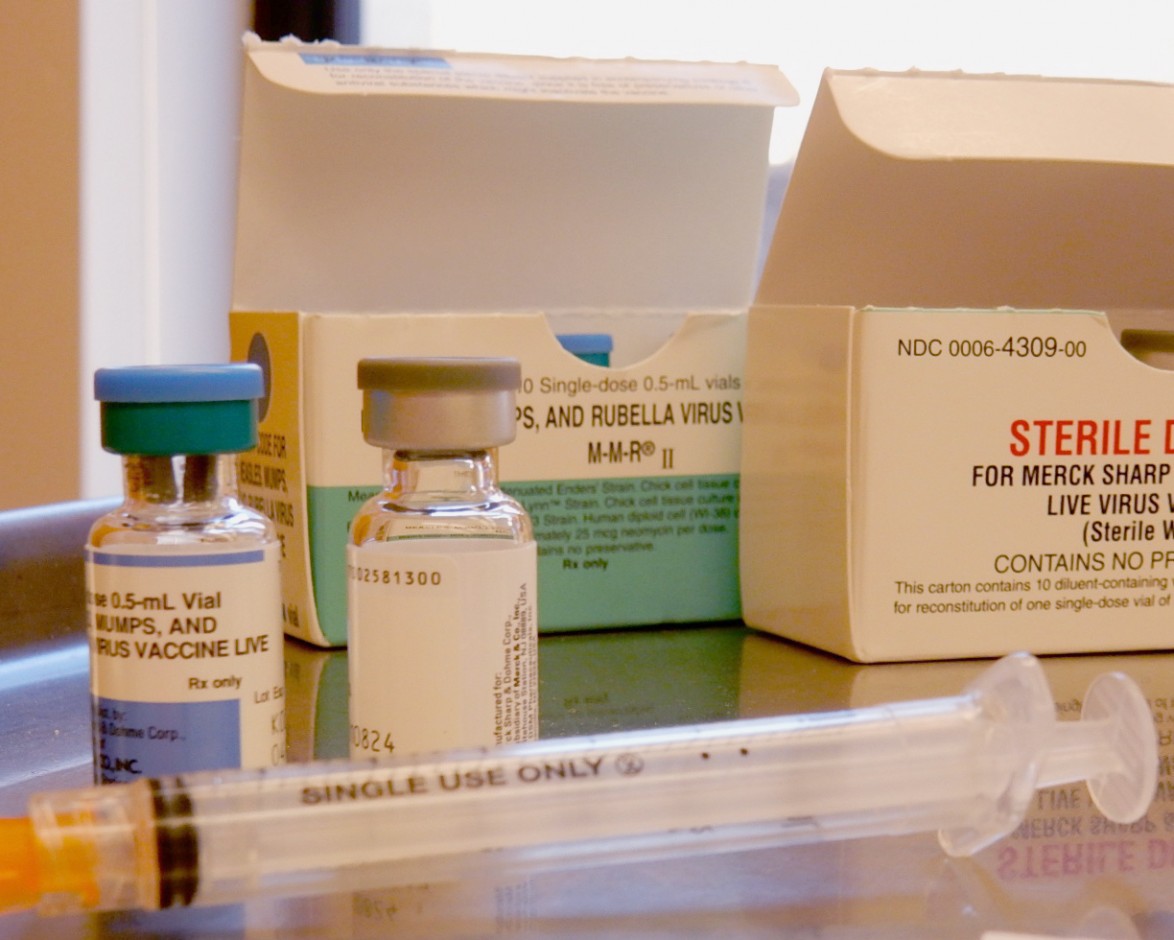
Paying a fee to get pricked by a needle might not be on the top of many people’s lists of things to do, but maybe it should be.
With the recent outbreak in Measles throughout the United States, students may be wondering what they can do to prevent any health issues such as this.
Kathryn Benson, Concordia’s health center administrator, said she recommends students take the precautions to stay in good health – getting vaccinated is a great start.
According to Minnesota state law, the vaccines that Concordia students must have are the MMR vaccine, which immunizes against Measles, Mumps and Rubella and the TDAP vaccine, which immunizes against diphtheria, tetanus and pertussis.
When each school year starts the health center checks to make sure every student has the mandatory vaccines. If they don’t, Concordia will notify them.
The health center recommends that students also get the Hepatitis B, Hepatitis A, Meningitis and Chicken Pox shots. They also recommend that everyone get a flu shot on a yearly basis.
“We are so interconnected that decisions we make individually can have widespread consequences,” Benson said.
She said these vaccines are recommended for many reasons. For instance, many students study abroad and may be exposed to foreign illnesses. Also, many students live in close quarters and share communal space.
“When [diseases] are able to be controlled by vaccines, why don’t we take advantage of them?” Benson said.
Dr. Kristen Hetland, chair of the health and physical education department, thinks people should listen to recommendations of professionals who have studied the vaccines.
“I wonder how many people have actually done their homework to educate themselves on the facts,” Hetland said. “Instead, people just make decisions without knowing the facts proven by research.”
The MMR, TDAP, Hepatitis B, Hepatitis A, Meningitis and flu shots are all either readily available at Concordia’s health center or can be ordered in per request.
Each year nursing students administer the flu shot to students for a fee of $20. Whether it’s worth it or not to get a flu shot is ultimately up to the student. Benson said she knows of students who have missed four to five days of class because they had influenza.
“So what’s the trade off?” Benson said. “It can really wipe you out.”
Benson added that students should not go back to class after having the flu until they have been fever free for 24 hours without using any Tylenol or Ibuprofen, otherwise they may still be contagious
“We have responsibilities to ourselves and to our community,” Benson said. “It upsets students’ lives. It upsets faculty members’ lives.”
Since college students are living so close in proximity to each other, being aware of the effect everyone’s decisions have on others is something to keep in mind.
“Its more than a medical issue in some ways,” Benson said. “It gets to be an ethical issue.”

